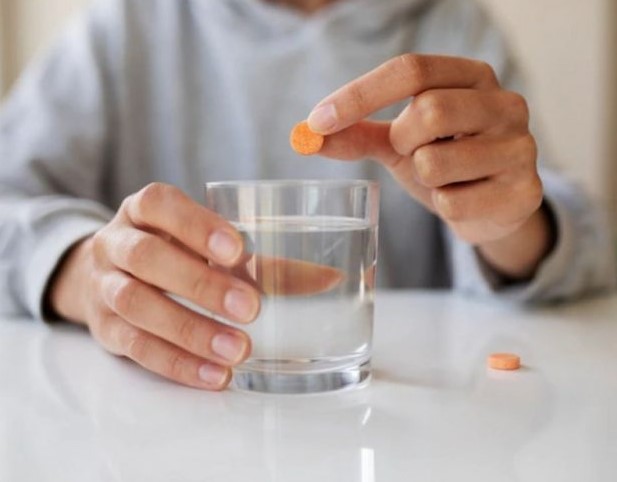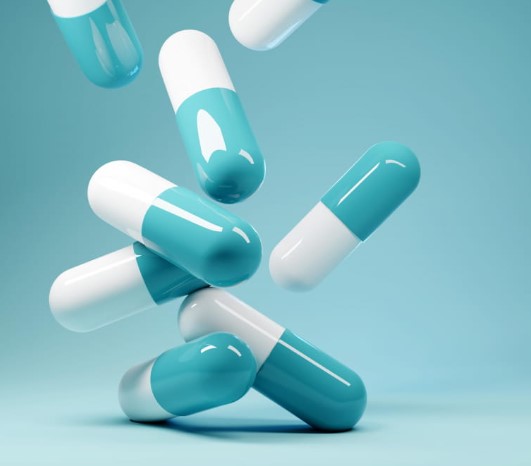Taking antibiotics and being overweight... How are they related?

Photo is illustrative in nature. From open sources.
Taking antibiotics is an inevitable part of the treatment of many infectious diseases. However, many people are overweight after taking antibiotics. How does this happen and what can be done to avoid this problem?
There are several ways that taking antibiotics can affect your weight. First, some antibiotics can alter the composition of the gut microbiome. The microbiome is the collection of microorganisms that live in the gut and perform important functions for our health. Changing the composition of the microbiome can lead to metabolic disorders and weight gain.
Secondly, some antibiotics can cause indigestion, which can lead to decreased appetite and reduced food intake. However, this is not always beneficial, as eating too little can slow down your metabolism and lead to weight gain.
Thirdly, taking antibiotics can cause an increase in insulin levels in the blood, which can lead to metabolic disorders and weight gain.
What can be done to avoid being overweight after taking antibiotics? First, you need to watch your diet and make sure you're consuming enough fiber- and probiotic-rich foods. This will help maintain a healthy composition of the gut microbiome and avoid metabolic disturbances.
Secondly, it is necessary to exercise moderately, as this will help speed up the metabolism and reduce the level of insulin in the blood.
Thirdly, it is necessary to consult a doctor and consult with him about the possible side effects of antibiotics and how to prevent them.
In general, taking antibiotics can lead to problems with being overweight, however, with the right diet, moderate exercise, and consultation with your doctor, you can avoid this problem and maintain a healthy lifestyle.
Read together with it:
- Antibiotics in milk: the problem and ways to solve itMilk is a staple food that is widely used by people around the world. However, despite its benefits and popularity, there are concerns about the presence of antibiotics in milk. This is because some farmers may useantibiotics for the treatment of animals or the prevention of diseases, which may resu...
- Antibiotic tests pioneerTests forAntibiotics are an important tool in medicine for determining the sensitivity of bacteria to various antibiotics. A Pioneer in this field is a technique developed in the 1950s that can quickly and efficiently determine the effectiveness of antibiotics against specific microorganisms. In thi...
- My husband's attitude made me depressedI have been depressed for the last 2 years. I am 36 years old,married for 11 years, two children - 8 years and 4 years old. I haven’t worked for 8 years, I stay at home with the children.When the eldestI sent my daughter to kindergarten, she began to constantly get sick, after 7 months she was still...
- Green snot... When should you take antibiotics?Green snot is one of the symptoms that can accompany a cold or flu. Often people turn to antibiotics to get rid of green snot, but this may not be the right approach to treatment. Antibiotics are not a universal cure for all types of infections. They are only effective against bacterial infections, ...
- Antibiotics in buckwheat: myth or reality?Buckwheat is one of the most popular grain crops in Russia and other countries. Its high nutritional value and availability make it a favorite for many people. But is there a connection between buckwheat and antibiotics? There are many myths about what buckwheat containsantibiotics . However, scient...
- Antibiotics in fish: myth or reality?Fish is one of the most popular food all over the world. It is rich in proteins, vitamins and minerals, and also contains essential fatty acids, which are essential for human health. However, there is an opinion thatfish may containantibiotics , which are used in industrial fisheries to treat fish d...
- Antibiotics in flounder, myth or reality?The flounder isfish , which is very popular in many countries of the world. However, the use of flounder can lead to dangerous consequences, since this fish may containantibiotics . In this article, we will talk about 10 reasons why you should give up flounder. 1. Flounder may contain antibiotics. T...
- CefacetrilCefacetril is an antibiotic that belongs to the class of third-generation cephalosporins. It is used to treat various infections caused by bacteria, including pneumonia, sepsis, urinary tract infections, and skin infections. The action of cefacetril is based on its ability to destroy the cell walls ...
- CeftiofurCeftiofur is an antibiotic that belongs to the fourth generation cephalosporin class. It is widely used to treat infections caused by bacteria that are sensitive to this drug. Ceftiofur is highly active against gram-negative bacteria such as E. coli, Klebsiella, Proteus and Pseudomonas. It is also e...
- Can antibiotics be added to milk?Adding antibiotics tomilk is a topic that causes a lot of controversy and discussion. Some people believe that this is necessary to prevent diseases in animals and protect human health, while others believe that this can lead to serious problems. First, it is worth noting that adding antibiotics to ...

